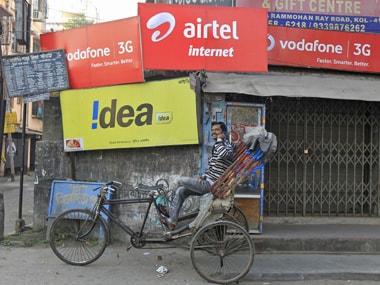New Delhi: Telecom firms, barring Reliance Jio, have asked the government to waive GST on spectrum payments and other levies, while adjusting accumulated tax credits of Rs 35,000 crore in the pending payments. In a letter to Telecom Minister Manoj Sinha Monday, the Cellular Operators Association of India (COAI) said value-added tax or goods and services tax (GST) is not applicable to government services internationally, as they are considered ‘out of scope’ or regarded as non-economic activities or sovereign functions that are outside the ambit of tax. “Therefore, in line with the international practices, it is requested that payment of regulatory levies (licence fees (LF), spectrum usages charges (SUC), and spectrum payments) made by telecom operators should be exempted from tax under GST. “The same could be achieved by issuing exemption notifications as per provisions stipulated under GST Act,” said COAI Director-General Rajan S Mathews in the letter. COAI members include Bharti Airtel, Vodafone Idea and Reliance Jio. Mathews, however, said Reliance has a dissenting view in the matter. [caption id=“attachment_5093881” align=“alignleft” width=“380”]  Representational image. Reuters[/caption] He said that according to a report of the Telecom Regulatory Authority of India, the industry’s revenue reduced 32 percent between April-June 2016 and April-June 2018, and it is expected that the revenue in 2018-19 will be lower than that of the revenue in 2013-14 at Rs 1.45 lakh crore. “Since the industry’s revenues have declined substantially, the output GST on revenue is unable to absorb input GST credits available. Such a situation has led to blocking of approximately Rs 35,000 crore of operator’s capital in the form of excess GST credits,” Mathews said. Telecom operators adjust input credit in GST that they collect from customers. Mathews said levy of GST on a reverse-charge basis on both spectrum payout and LF, and SUC-related payments are leading to a cascading cash-flow impact requiring payment of GST, which cannot be set off against a corresponding GST liability. “We request the government to facilitate a greater utilisation of the accumulated GST input tax credit of telecom service providers as it will be of big relief to the ailing industry… utilise the excess GST credit as payment towards the Telecom operators’s liability towards spectrum auction and licence fees/SUC,” Mathews said.
The Cellular Operators Association of India say GST is not applicable to government services internationally, as they are considered ‘out of scope’ or regarded as non-economic activities or sovereign functions that are outside the ambit of tax.
Advertisement
End of Article


)

)
)
)
)
)
)
)
)



